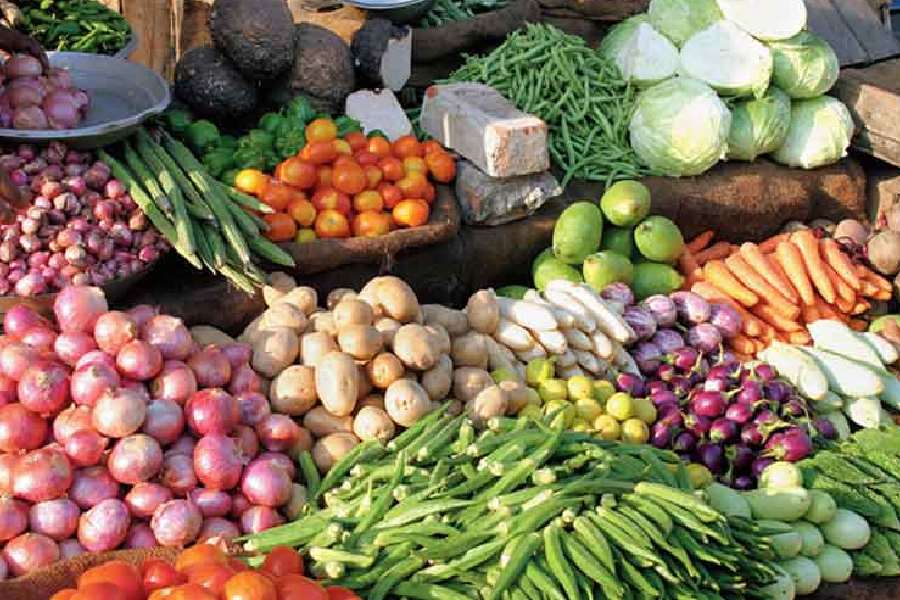The Mamata Banerjee government has decided to open 100 new centres at strategic locations across Bengal to purchase vegetables directly from farmers and sell them through Sufal Bangla stalls, the state-run retail outlets.
The decision is to meet the twin objectives of ensuring fair prices for farmers and keeping the vegetables’ rates under check.
A source in the agriculture marketing department said the move was also aimed at establishing robust state-run retail facilities across Bengal in the next few years.
“The government will buy the farmers’ produce at rates higher than those at the wholesale markets and sell them to customers at lower prices in comparison to local markets. We have around 500 Sufal Bangla stalls and will increase the number based on the supply of vegetables from the farmers,” said Becharam Manna, the state agricultural marketing minister.
“Besides helping the farmers, this will help us provide vegetables at fair prices,” Manna added.
An official said the government had already identified 46 strategic locations across the state where procurement would begin soon.
At present, the state has only five such procurement centres at places like Singur in Hooghly district and Bhangar in South 24-Parganas.
As the prices of vegetables, including potatoes, started skyrocketing earlier this month, chief minister Mamata Banerjee convened a meeting of the task force, set up to keep a tab on prices, and instructed the members to take measures to soften the prices within 10 days.
The agricultural marketing department is still working to bring down the prices of potatoes and a few other vegetables, said a source.
“When we stopped the interstate sale of potatoes, the traders’ outfit went on strike, worsening the situation. If you look at the price of a particular vegetable, which is ₹50 per kg in the retail markets, the farmer hardly gets ₹15 per kg as the middlemen take the lion’s share. Our attempt is to reduce this profiteering by intermediaries,” said a state government official.
On Wednesday, the market price of the Jyoti variety of potatoes was ₹34 per kg and the Chandramukhi variety cost ₹40 per kg. However, the government has been selling Jyoti potatoes at ₹27 per kg from around 500 Sufal Bangla stalls.
“The state has 1,000 Farmers’ Producers Organisations (FPO) which will run those procurement centres,” the official said.
He said if farmers brought large quantities of vegetables on a particular day or time, 72 cold storage facilities (for items other than potatoes) could store them.
The government has also decided to cover the transportation costs for farmers when retail market prices rise and they will be paid on the
spot online.
However, according to some government officials, intensifying a government set-up to compete with local markets is easier said than done because of several factors. The first is whether farmers will sell their vegetables in significant amounts to the government, as many of them are not accustomed to the online payment system.
The other challenge will be the coverage of Sufal Bangla stalls. “People generally prefer buying from vendors near their homes.... It remains to be seen whether they would walk into the stalls managed by the government,” said a source.











